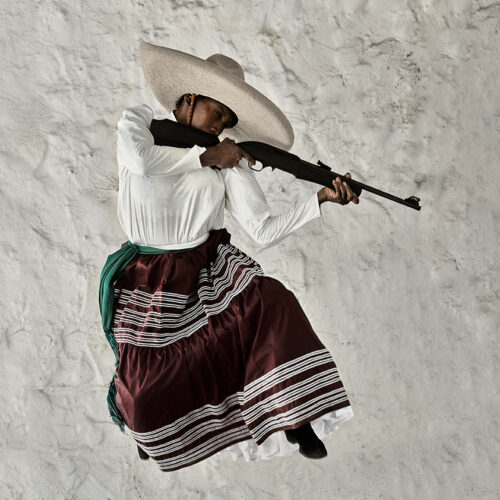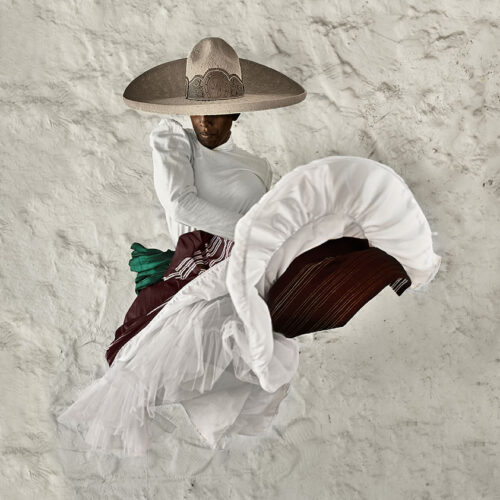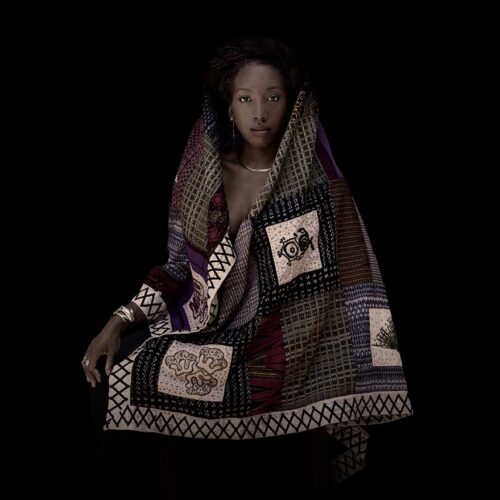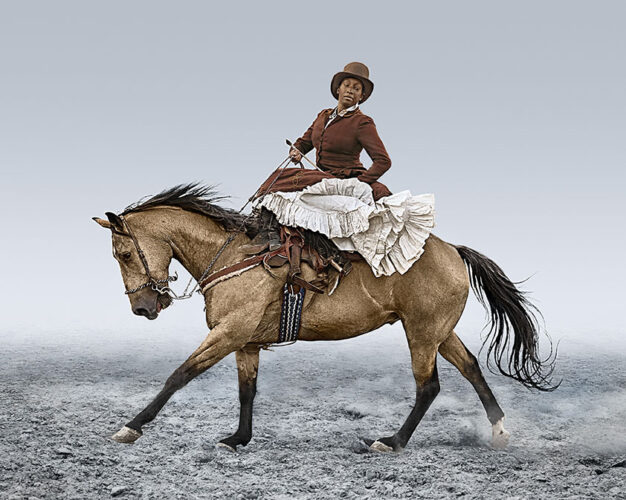EXPOSICIONES
Nosce Te Ipsum: Membrum Fantasma
Ayana V. Jackson
30 abr. — 31 ago. 2025
Museo Nacional de Antropología
— Madrid
Inauguración
29 de abril, 19h30
Comisariado por
Marisol Rodríguez
Organiza
Ministerio de Cultura, Museo Nacional de Antropología y PHotoESPAÑA
Colabora
Museo de América, Museo del Traje y Alturas Foundation
Horarios de la sede
De martes a sábado: de 9:30 a 20:00
Domingos: de 10:00 a 15:00
Cerrado todos los lunes del año, 1 y 6 de enero, 1 de mayo, 24, 25 y 31 de diciembre y un festivo local
Sede
Museo Nacional de Antropología
C. de Alfonso XII, 68
Entrada
Mapa
Ayana V. Jackson (East Orange, New Jersey, 1977) inició su práctica fotográfica en los primeros años del siglo XXI. En 2016, llamó la atención de la comunidad artística internacional con la serie Archival Impulse, cuyo título, inspirado en las teorías del crítico Hal Foster, apelaba a la necesidad de confrontar el archivo para crear nuevos sistemas de conocimiento.
Las sucesivas series de la artista, que actualmente trabaja entre Estados Unidos, Sudáfrica y México, abordan las colecciones históricas como dispositivos que nos permiten evaluar tanto el impacto de la mirada colonial como el rol de la fotografía en la perpetuación de jerarquías, estratos y desequilibrios sociales. A través de una exploración que revisita los mitos de la diáspora africana, Jackson se apropia de las imágenes coloniales para recrearlas como un medio de emancipación del cuerpo negro. Sus poderosos retratos, liberados del estatismo y los estereotipos del referente histórico, abren un espacio para repensar la fotografía y convertirla en un instrumento de resistencia crítica frente a las construcciones de raza, género y clase que todavía nos lastran.
Nosce Te Ipsum, conócete a ti mismo, es la inscripción latina que da la bienvenida a este museo, erigido hace 150 años como templo del antropocentrismo ilustrado. Jackson interioriza la máxima y propone una réplica en tiempo presente. Su propuesta, fruto del rastreo de presencias afro y afromestizas en las colecciones antropológicas y etnográficas estatales, incluye varias obras inéditas creadas con el fin de entablar un diálogo, horizontal y directo, con una institución en pleno proceso decolonial, adquiriendo en este contexto una dimensión solemne. Tras la primera gran exposición que le dedicó el Smithsonian National Museum of African Art en 2023, esta es su primera muestra individual en Europa.
Ayana V. Jackson (East Orange, New Jersey, 1977) started working in photography in the early twenty-first century. In 2016, she drew the international art community’s attention with the series Archival Impulse, whose title, inspired by the theories of the critic Hal Foster, appealed to the need to confront archives to create new knowledge systems.
The successive series by this artist, who currently works between the United States, South Africa, and Mexico, examine historical collections as devices that enable us to assess both the impact of the colonial gaze and the role of photography in perpetuating social hierarchies, strata, and imbalances. Through an exploration that revisits the myths of the African diaspora, Jackson appropriates colonial images to re-create them as a way of emancipating the Black body. Her powerful portraits, freed of the stasis/statism and stereotypes of the historical referent, open a space to rethink photography and turn it into an instrument of critical resistance against the race, gender, and class constructions that still encumber us.
Nosce Te Ipsum, ‘know thyself’, is the Latin inscription that welcomes visitors to this museum, which was built 150 years ago as a temple of Enlightenment-era anthropocentrism. Jackson internalises the maxim and suggests a replica in the present time. Her proposal, based on tracing the Afro and Afro-mestizo presences in the state anthropology and ethnography collections, includes several unpublished works created with the goal of initiating a horizontal, direct dialogue with an institution in the throes of decolonisation, taking on a formal dimension within this context. In the wake of the first major exhibition of her works at the Smithsonian National Museum of African Art in 2023, this is her first solo show in Europe.





